Bookshop

Guter Zustand. Zur Zeit an Lager: die Ausgabe mit dem schwarzweissen Umschlag (erste Ausgabe bei Neue Kritik von 1969). Leicht fleckig und etwas zerlesen, deshalb der etwas niedrigere Preis.

Als Anté Ciliga, Mitglied des ZK der Kommunistischen Partei Jugoslawiens, 1925 auf Grund seiner Parteiarbeit des Landes verwiesen wird, entscheidet er sich nach einem Jahr Tätigkeit als Auslandsvertreter der Komintern in Wien in die Sowjetunion zu gehen, um dort „an Ort und Stelle die Erfahrungen der ersten grossen russischen Revolution zu studieren“. Dabei stößt der promovierte Philosoph und Historiker auf eine Realität, die mit dem Selbstbild des neuen Staates unvereinbar ist. Er schließt sich der trotzkistischen Opposition an. Doch seine Empörung über die sozialen und politischen Verhältnisse „im Heimatland aller Werktätigen“ führt dazu, dass er sich vom Trotzkismus wieder löst. Ciliga sieht das bolschewistische Regime in einem antagonistischen Widerspruch zu den Arbeitern und Bauern, die Idee der Emanzipation der Arbeiterklasse verraten. Weil er sich darüber nicht beirren lässt, wird er gegen seinen Willen 10 Jahre in der Sowjetunion verbringen, davon mehr als die Hälfte in Haft und Lagern. Am Ende gelingt ihm nach mehrfachem Einsatz seines Lebens seine Ausweisung durchzusetzen. Ciligas Aufzeichungen aus dem „Land der verwirrenden Lüge“ sind auch noch heute ein authentischer Zugang zur Beantwortung der Frage, was die Sowjetunion historisch war und was es aus diesem gescheiterten Experiment zu lernen gibt.
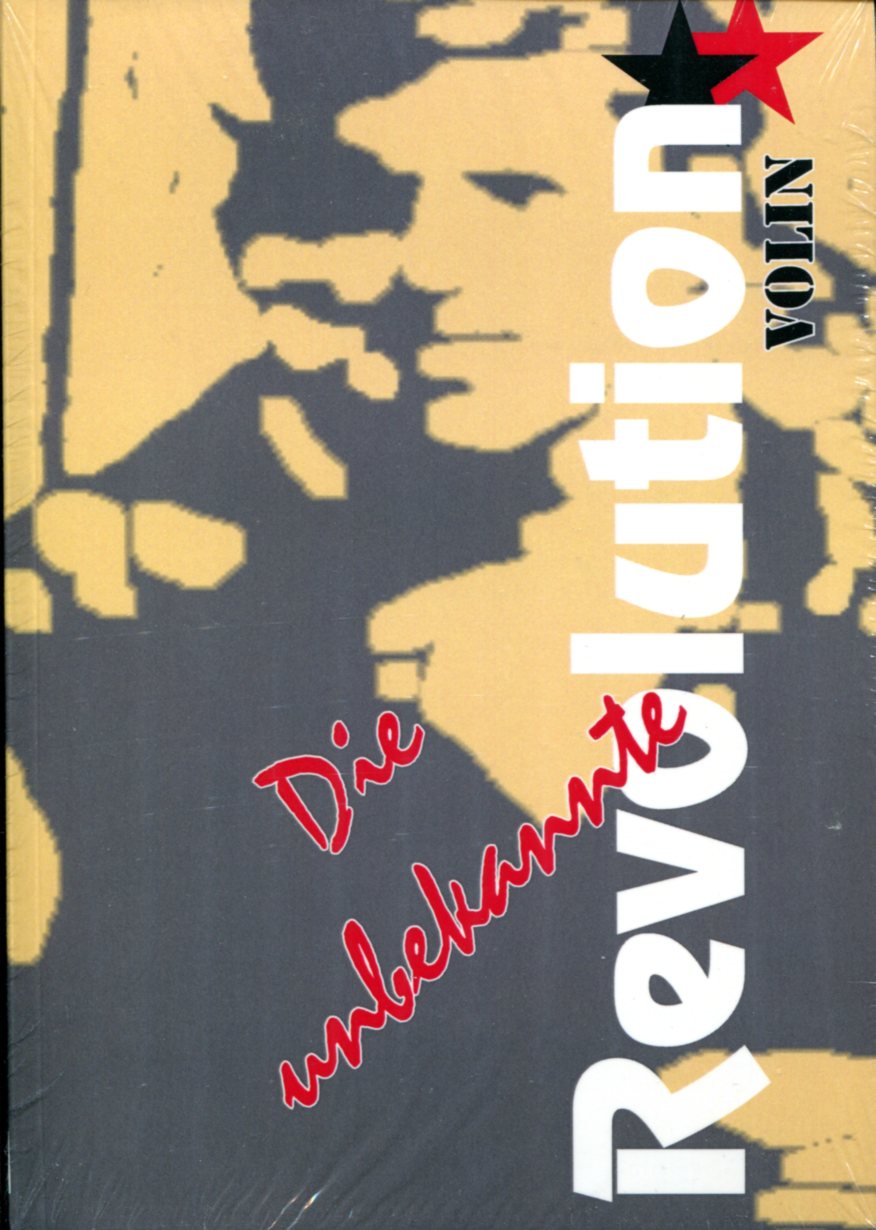
Als 1974 endlich eine deutsche Ausgabe von Volins Vermächtnis Die unbekannte Revolution erschien, wurde dies durch die Lautsprecher der Zeit übertönt. Für die großen politischen Strömungen des linken Antikapitalismus stand damals außer Zweifel, dass der zukünftige Sozialismus nur in der Nachfolge der Bolschewiki siegen könne. Doch spätestens mit der Implosion der Sowjetunion und der Auflösung bzw. Marginalisierung der an diesem Modell orientierten Parteien sind diese Gewissheiten erschüttert. Um die Ursachen des letztlich gescheiterten bolschewistischen Revolutionskonzepts zu begreifen, ist Volins Zeitzeugnis immer noch eine unverzichtbare Quelle. Der russische Revolutionär und Anarchist analysiert hier die Vorgeschichte und den Ablauf der Oktoberrevolution, zerpflückt mit Hilfe von Dokumenten verbreitete Lügen über den Aufstand von Kronstadt und eröffnet den Blick für die kaum bekannten Bauernkämpfe in der Ukraine. Seine Analyse eröffnet einen Zugang zur sozialen Revolution aus dem „Gedächtnis der Besiegten“ und macht begreifbar, warum der Bolschewismus selbst, und nicht erst seine stalinistischen Exzesse, zum Problem der sozialen Emanzipationsbewegungen Russlands und der Ukraine wurde.
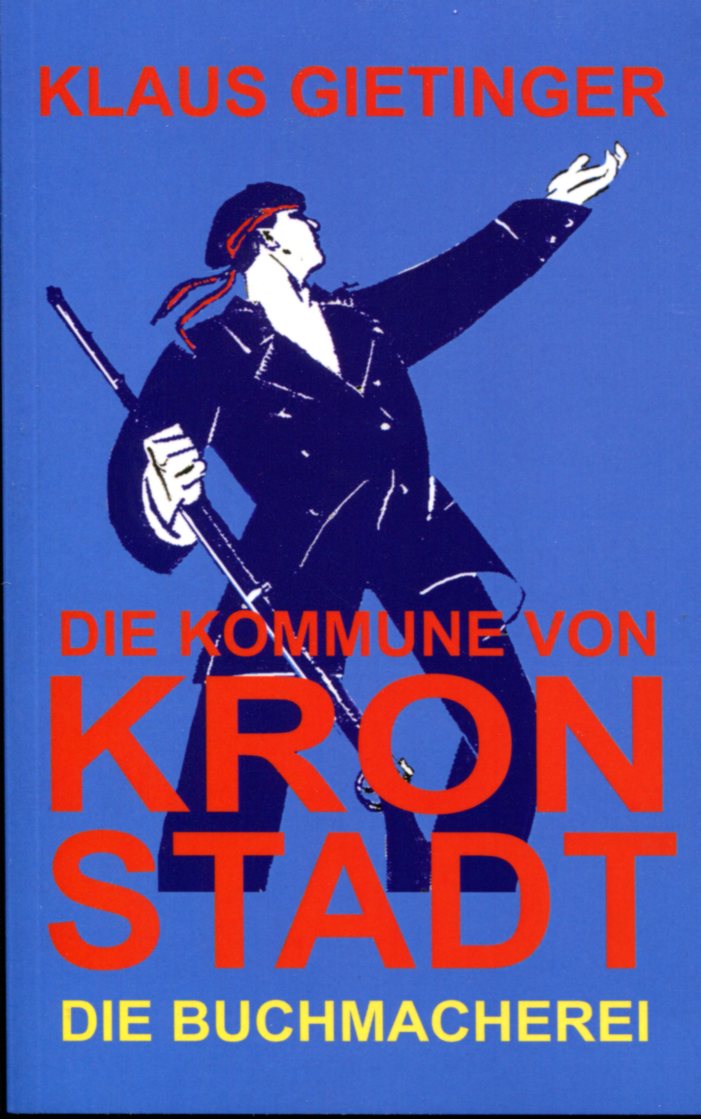
Vor 90 Jahren, am 16. März 1921, attackierten 50 000 Rotarmisten unter General Tuchatschewski die Festung Kronstadt (vor Petrograd, heute St. Petersburg gelegen), in der 14 000 Matrosen zusammen mit der Zivilbevölkerung der Stadt, die "Dritte Revolution" gelebt und verkündet hatten. Jene Matrosen, die von Leo Trotzki einmal als "Schönheit und Stolz der Oktoberrevolution" gepriesen worden waren, weil sie 1917 den Bolschewiki zum Sieg verholfen hatten. Kronstadt gab einem Aufstand den Namen, der den Niedergang der Oktoberrevolution symbolisiert, wie kein anderer. Kronstadt ist der point of no return der russischen Revolution. Danach war die Sache praktisch gelaufen. Wie aber kam es zum Kronstädter Aufstand? War es ein konterrevolutionärer Putsch oder der Versuch die Revolution in die Hand derer zurückzuholen, die sie gemacht hatten?

Guter Zustand. Andere Umschlaggestaltung als abgebildet, aber identischer Inhalt und ISBN
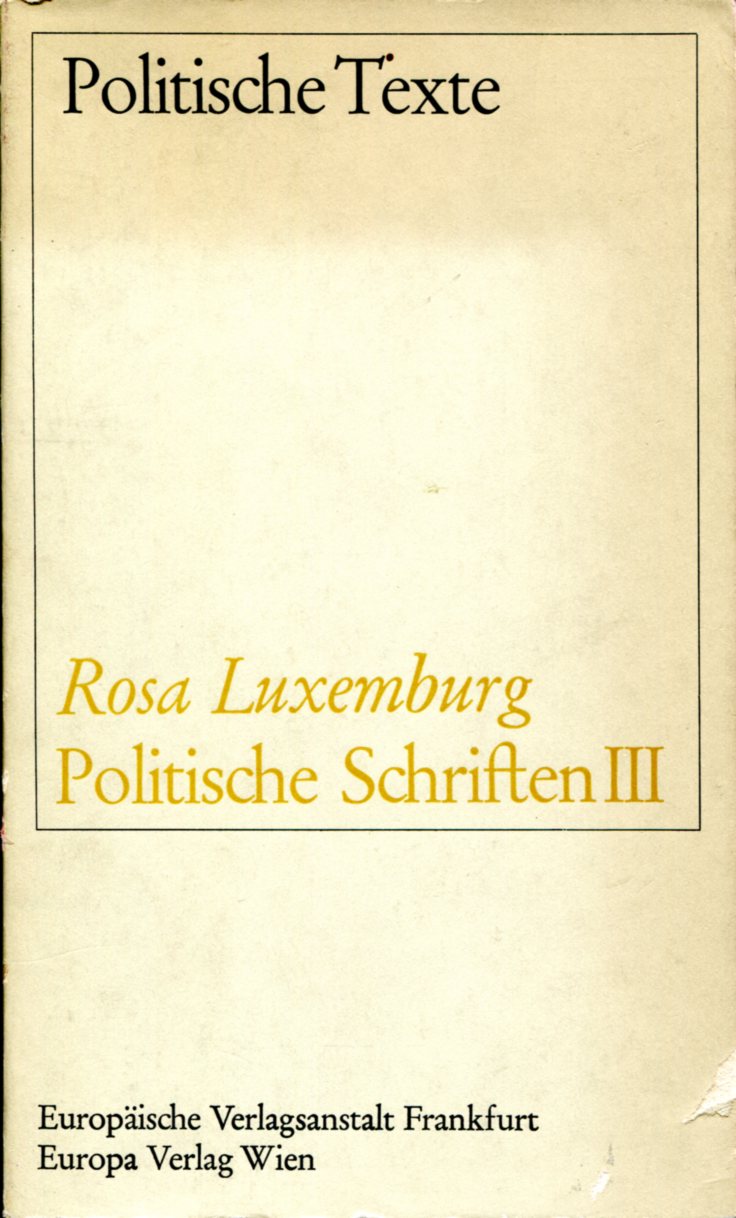
es sind momentan 2 expl an lager, eines in gutem, eines in akzeptabel bis gutem zustand. Mit dem wichtigen Artikel zu russischen Revolution!

Issue 2, February 2014 The second issue of the Sic journal is now available.You can order copies here. Not an Editorial Woland, The Uneven Dynamics of the Era of Riots Leon de Mattis, Communist Measures R.S., The Conjuncture Woland, Rise of the (Non-)Subject R.S., The Movement Against the French Pension Reform Rocamadur, The Feral Underclass Hits the Streets Rust Bunny Collective, Under the Riot Gear Research & Destroy, Limit Analysis and its Limits Agents of Chaos, Without You, Not a Single Cog Turns

Can we find alternatives to the failed radical projects of the twentieth-century? What are the possible forms of struggle today? How do we fight back against the misery of our crisis-ridden present?"Communization" is the spectre of the immediate struggle to abolish capitalism and the state, which haunts Europe, Southern California, and wherever the real abstractions of value that shape our lives are contested. Evolving on the terrain of capitalism new practices of the "human strike," autonomous communes, occupation, and insurrection have attacked the alienations of our times. These signs of resistance are scattered and have yet to coalesce, and their future is deliberately precarious and insecure.Bringing together voices from inside and outside of these currents Communization and Its Discontentstreats Communization as a problem to be explored rather than a solution. Taking in the new theorisations of Communization proposed by Tiqqun and The Invisible Committee, Théorie Communiste, post-autonomists, and others, it offers critical reflections on the possibilities and the limits of these contemporary forms, strategies, and tactics of struggle.Contributors include: Alberto Toscano, Nicole Pepperell, Anthony Iles, Marina Vishmidt, Evan Calder Williams, Jason E Smith, Théorie Communiste, Endnotes, Jasper Bernes, John Cunningham, George Ciccariello-Maher, and Alexander Galloway.

Exploding as politically revolutionary at the heart of the Paris 1968 uprisings, the Situationist International has proved a tenaciously compelling radical movement in terms of asthetics and political theory.This crucially important book is not only a philosophical landmark, it is also a cult classic that has has established the Situationist movement -- of which Debord was the key member -- as one of the most influential of the twentieth century.This new translation by John McHale is the first officially authorised in English. The book has previously been available only in underground or online formats, so McHale's work promises to bring the work of the Situationists to an even wider audience.The Real Split in the International sees Debord not only evaluate the movement as a whole, but also signal the end of it. For him, it had become clear that the Situationist's success had produced -- within its own ranks as well as outside them -- a host of fans and 'onlookers' who amounted to little more than consumers of a radicality that had become fashionable. In this way the movement had begun to encompass the very 'society of the spectacle' that the Situationists had challenged. There was a danger that Situationist theory could turn into ideology -- Debord's reaction was to break up the movement. About The Translator John McHale has translated Alice Becker-Ho's Les Princes du Jargon, her L'Essence du Jargon and Guy Debord's Panégyrique Volume 2. He lives in London.Guy Debord was a revolutionary theorist, a film-maker, the indisputable head of the Situationists, and a key figure in the constellation of French theorists and intellectuals from the 1960s onwards. He committed suicide in 1995 at the age of 63. Identifying everyday life as the terrain of revolutionary activity, he added new and apposite dimensions to Marxist thinking in the late twentieth century:The Society of the Spectacle, his seminal work, characterised a society resting not only on the alienated labour of workers, but on the alienated lives of spectators.
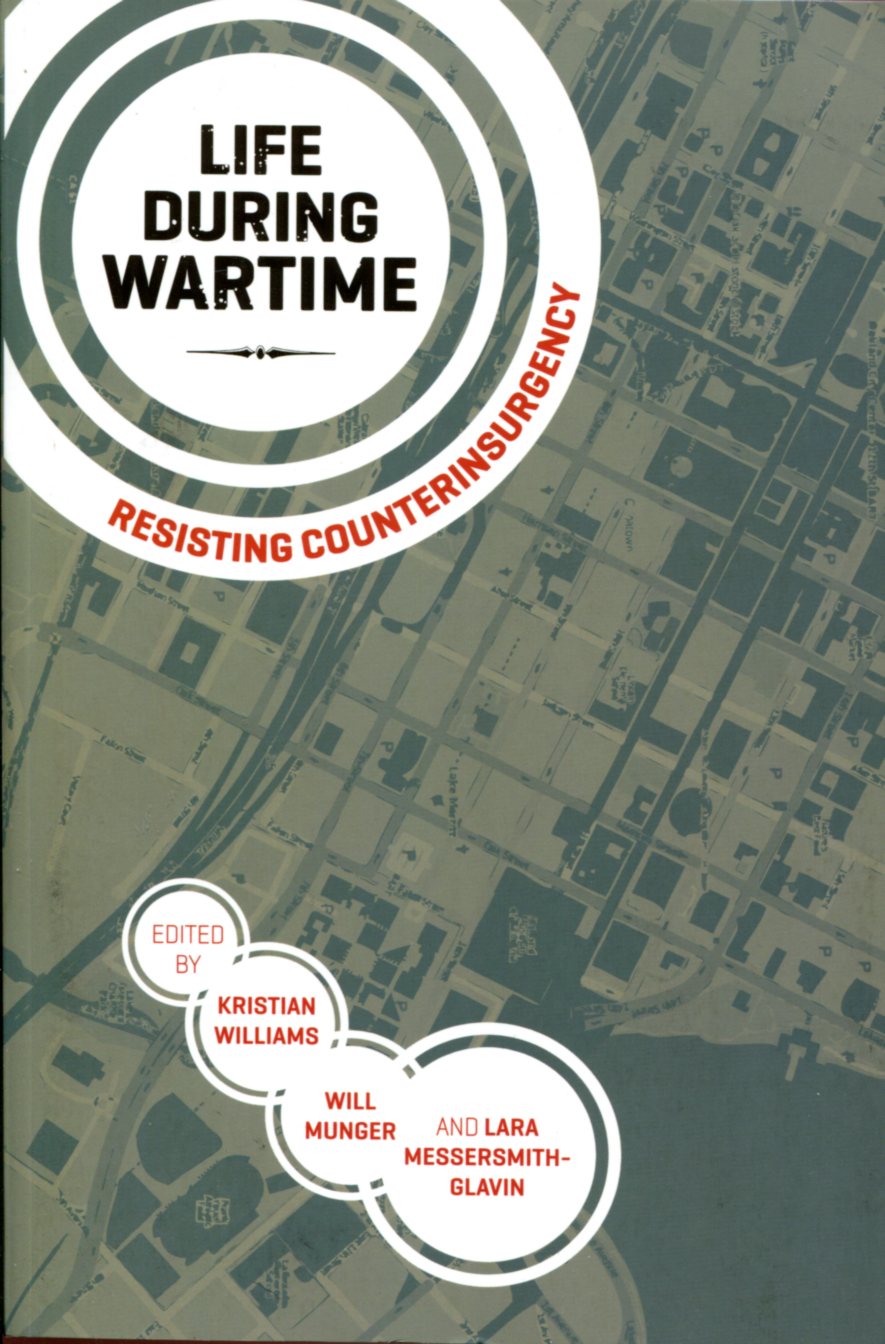
Kristian Williams is the author of Our Enemies in Blue: Police and Power in America,American Methods: Torture and the Logic of Domination, Confrontations: Selected Journalism, and Hurt: Notes on Torture in a Modern Democracy. Lara Messersmith-Glavinis the founder and managing editor of the non-fiction journal Alltopia, and on the board of directors for the Institute for Anarchist Studies. Will Munger was the main organizer of the Counter-Counterinsurgency Convergence in April 2011. "Together, the writers sound a sobering warning: the American government is an iron fist in a velvet glove whose purpose remains preserving the status quo and enriching the rich."—Publishers Weekly

etwas zerlesener zustand
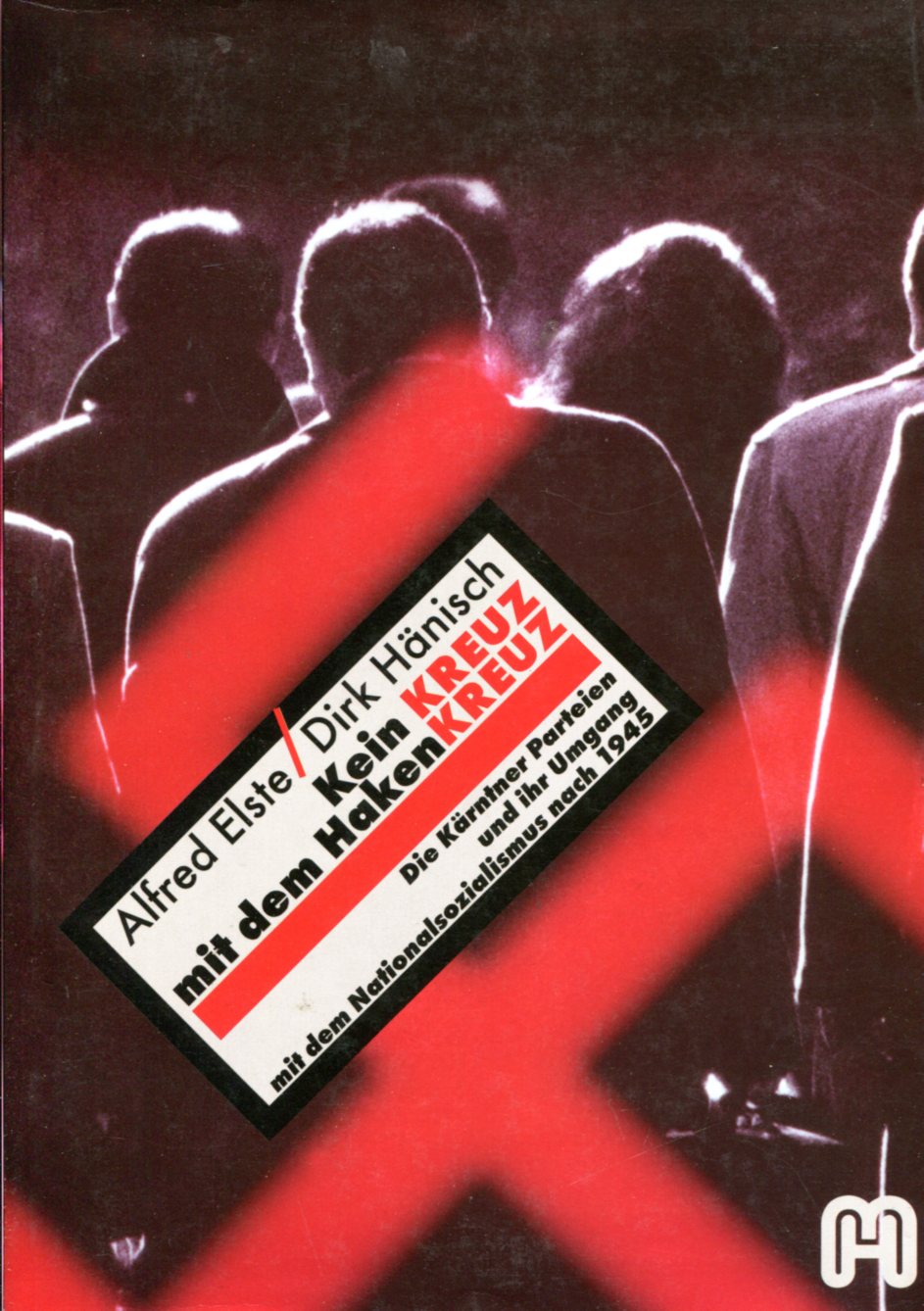
Sehr guter Zustand

Datacide Nine appeared in spring 2006. This first reprint of an earlier issue features the complete text of the original edition, but has been newly laid out and arranged. The original editorial (opposite page) is followed by the main features, while the scene reports were moved to the back of the issue. We’re happy to have this long deleted issue back in print; it features some of the most read articles on the datacide web site that are still relevant and of interest today. The original editorial reflects the particular historical situation in which the issue originally appeared: The repression against Teknivals as well as the particular (wider) political situations, while technological developments and economic problems are covered in passing. Out of the ensuing crisis of the already completely marginalized counter culture developed the desire to start something new, and we announced that Datacide Ten would be the last issue. This has of course not been the case. Instead, we felt re-invigorated enough after the 2008 issue of Datacide Ten and the accompanying conference to keep going, and the last few years have seen a consolidation of our release schedule and an expansion in size and content.October 12, 2013 saw the release of the new issue, number Thirteen, and yet again it is the biggest issue so far. There was an event with talks, concerts and party in Berlin on that day. We were present at the Anarchist Bookfair in London on October 19. The next day we did a small launch event in London. Datacide was presented for the first time in the U.S. with a soliparty on November 15 and a conference on November 17. Datacide tabled at the Los Angeles Eastside Zine Market on December 8, and the Art Book Fair from January 30-February 3, 2014. Rather than trying to increase the frequency of Datacide, we would like to complement it with additional books and pamphlets.Please consider taking out a subscription to help us achieve these aims! PRICE INCLUDES WORLDWIDE SHIPPING! IN STOCK NOW! table of contentsfeatures page 4.......Howard Slater: Lotta Continua - Roots Music and the Politics of Production page 8.......Matthew Hyland: Say Fear is a Man’s Best Friend - You Add it up, it Brings You Down page 10.....Christoph Fringeli: Anti-Imperialism - Bankruptcy of the Left? page 12....(Anonymous): You Must Help Yourself - Neo-Liberal Geographies and Worker Insurgency in Osaka page 16.....Christoph Fringeli: The Brain of Ulrike Meinhofbook reviews page 18.....Stewart Home: The Eclipse and Re-Emergence of the Bildungsroman page 19.....Christoph Fringeli: Michael Steffen: Geschichten vom Trüffelschwein page 20.....Christoph Fringeli: Breggin/Cohen: Your Drug May Be Your Problemmusic page 22.....Interview with John Balance of Coil from 1986 page 27.....Christoph Fringeli: Anti-Semitism from Beyond the Grave - Muslimgauze’s Jihad fiction page 28.....Secessionist Outernational to Ourganisation - 1st May in December page 30.....Matthew Fuller: Interview with a Photocopier page 31.....The Wirebug: The End page 32.....Record Reviews page 38.....Scene Reports from Berlin, Israel, Los Angeles, Italy, Brazil page 39.....Terry Ordo and accomplices: Tek it Up - Report from Czech Tek 2005 page 42.....The Lives and Times of Bloor Schleppy (9) page 43.....DJ Charts

342 | Protestbewegung in der Türkei Befreiend Die massenhaften Proteste während des Sommers 2013 in der Türkei offenbarten es: In erheblichen Teilen der Bevölkerung hat sich enormer Unmut über die konservativ-islamische AKP und die von ihr verursachte soziale, kulturelle und ökonomische Misere angestaut. Istanbul erlangte damals innerhalb weniger Tage weltweite Berühmtheit als „City of Resistance“. Gezi war die Initialzündung, doch die daraus hervorgegangene Bewegung war landesweit, und sie erfasste erhebliche Teile der jungen Generation. Die Proteste wurden von JournalistInnen und AktivistInnen als Zäsur eingeschätzt. Einerseits fand eine Bewusstseins-revolution statt, bei der über politische Institutionen hinaus gegen verkrustete Strukturen aufbegehrt wurde. Andererseits ist die Gezi-Bewegung auf der realpolitischen Ebene vorerst gescheitert. Erdogan und die AKP sind weiter an der Regierung. Doch die daraus resultierenden schmerzhaften Niederlagen der Bewegung sind nur ein Teil der Geschichte, die in der Türkei derzeit gemacht wird. Unser Themen-schwerpunkt fragt nach den Hintergründen der Proteste, ihrer historischen Bedeutung und der Zukunft dieser heterogenen Bewegung. Inhaltsübersicht Beiträge im Themenschwerpunkt Editorial zum Themenschwerpunkt Das Rad ist im Rollen. Die Gezi-Bewegung hat die Türkei nachhaltig verändertvon Jan Keetman Einen Tee für alle bitte. Warum die Gezi-Protestbewegung überfällig warvon Gül Keetman »Leiste Widerstand mit Hartnäckigkeit«. Feministische Slogans prägten den Widerstandvon Tuğçe Ellialtı »Das F-Wort wurde verflucht«.Interview mit İnci Özkan Kerestecioğlu über türkischen Feminismus und die Gezi-Proteste »Hier bin ich, Darling«. Die LGBT-Szene vertritt ihre Ziele als Teil der Protestbewegungvon Canset Icpinar Vom Aufstand zur Palastrevolution. Der Machtkampf zwischen AKP-Regierung und Gülen-Netzwerkvon Errol Babacan »Ich entschuldige mich«.Interview mit Levent Sensever und Gonca Sahin über den Genozid an den ArmenierInnen und die Gezi-Proteste Und die Gewerkschaften? Widerstand gegen Islamismus und Neoliberalismusvon Axel Gehring »Jetzt diskutiere ich«. Die Kulturschaffenden sind wichtiger Teil der Protestbewegungvon Sabine Küper-Busch Weitere Themen im Heft: Editorial Politik und Ökonomie: Senegal: Einfach ist das nicht. AktivistInnen kämpfen gegen die verbreitete Homophobievon Martina Backes Ghana I: »Halb arm, halb reich«. Erfolgreich, aber die Armut besteht fortvon Maria Tekülve Ghana II: Röhrenfernseher für Afrika. Europas Elektroschrott wird oft illegal entsorgtvon Ines Zanella Burkina Faso: »Landwirtschaft gilt als aussichtslose Arbeit«.Interview mit Inoussa Maiga über die Herausforderungen kleinbäuerlicher Landwirtschaft Südsudan: »Dahinter steht der Tribalismus«. Ethnische Politik im Südsudanvon Ulrike Schultz Honduras: Vom Putsch zur »grünen« Diktatur. Indigene wehren sich gegen den Ausverkauf des Landesvon Kirstin Büttner und Daniela Dreißig Hispaniola: Achtzig Jahre auf Durchreise. Die Dominikanische Republik entzieht Staatsbürgerschaftenvon Tobias Schwarz Kultur und Debatte: Debatte: Zusammenarbeit mit Gotteskriegern? Replik auf René Wildangels Verteidigung der NGO-Arbeit in Palästinavon Remko Leemhuis Islamdebatte: Die Schatten verscheuchen. Boualem Sansal ruft zu einer neuen Debatte über Islam und Islamismus aufvon Matthias Küntzel Nachruf: Wider den autoritären Populismus. Mit Stuart Hall verliert die antirassistische Linke einen bedeutenden Intellektuellenvon Kolja Lindner Rezensionen
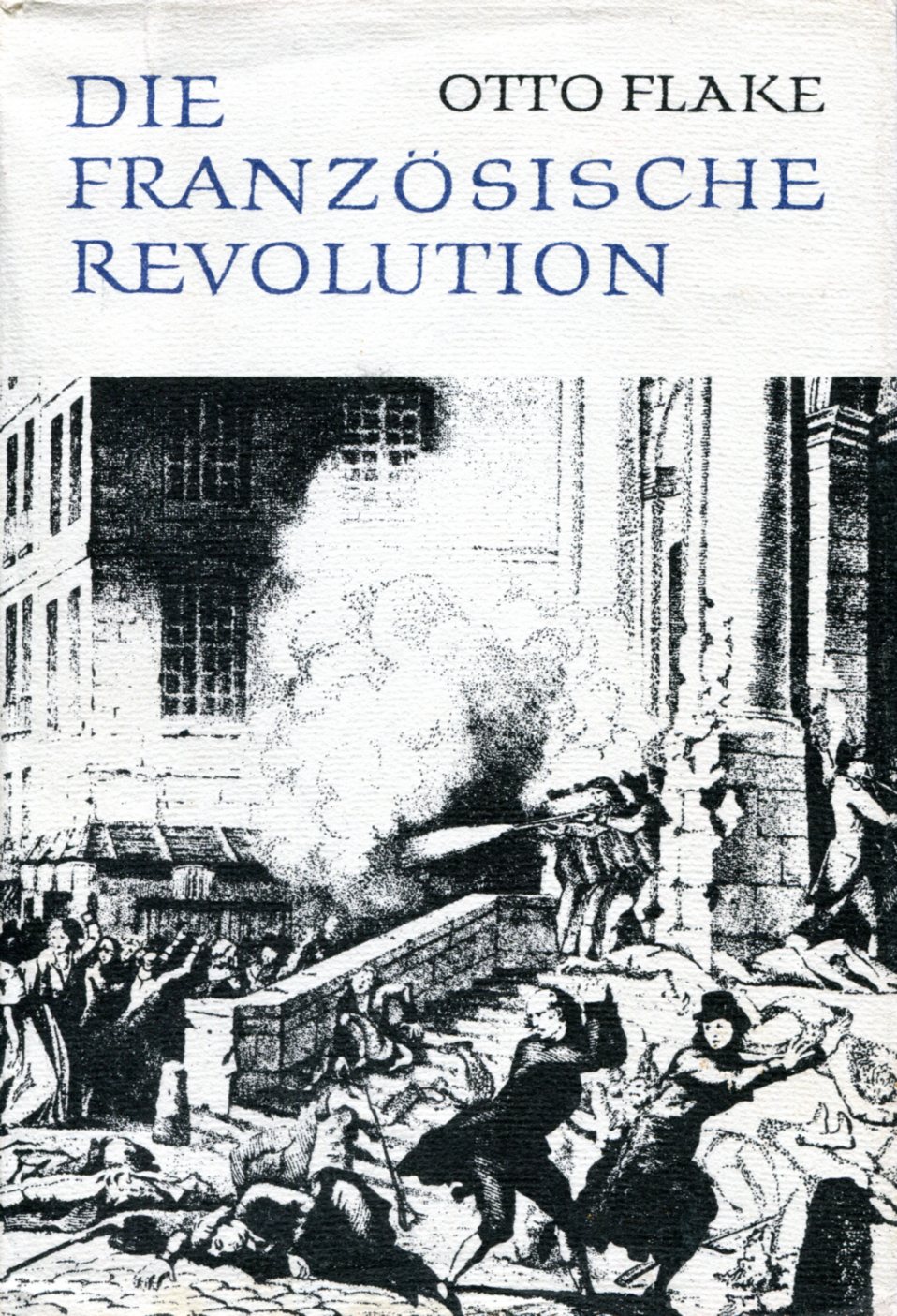
Schutzumschlag mit deutlichen Gebrauchsspuren, innen gut.

Of all living composers, Dumitrescu is the one who has most exploded sound. Dumitrescu’s work is a negation, from the depths, of everything in contemporary music symptomatic of distraction, of banalisation, and of a radical loss of purpose. His music is not a new convolution in the knot of modern music, but an unravelling of the curse.Tim Hodgkinson As a creator of radical music that breaks convention, riding on the edge of the classical avant garde onto realms more closely associated with the likes of Nurse With Wound or The Hafler Trio, Iancu Dumitrescu has the talent to lure you in, mystify and startle with unnerving ferocity.Alan Freeman ContentsBen Watson: Why The AMM Says ‘Listen to Dumitrescu!’ 1Ben Watson: Spectrum Festival Preview 3Ronsen, Peyret, Leroy: Iancu Dumitrescu - Acousmatic Provoker 7Ben Watson: Statement at Conway Hall, Spectrum 2008 38In Resonance with Iancu Dumitrescu and Ana-Maria Avram 39Out to Lunch: Our Kinetic Kynicism Knows No Bounds 84Iancu Dumitrescu: On the Inside Looking In 87Tim Hodgkinson Interviews Iancu Dumitrescu 95Tim Hodgkinson: A Note on Phenomenology 107Costin Cazaban: An Adventure in Experimental Music 109Eugene Thacker: Pulse Demons (extract) 125Andy Wilson and Ben Watson: The Music of Iancu Dumitrescu 131Ben Watson: Spectral Music at the Beginning of the 21st Century 159Guillaume Ollendorff: At the Heart of Chaos 163Guillaume Ollendorff: The Society of the Spectrum 171Tim Hodgkinson: The Tasks of the Composer 193Iancu Dumitrescu: Reply to Tim Hodgkinson 207Tim Hodgkinson: Reply to Iancu Dumitrescu 213Ryan Kirk: Interviews Dumitrescu 215Ana-Maria Avram: Composer From Bucharest, Romania 237Iancu Dumitrescu: Biographical Notes 245Iancu Dumitrescu: Catalogue of Works 253Pressbook 263Discography 285Related Recordings 359Index 369

Robert Dellar’s reminiscences impart a strange, unwholesome joy, like smoking a cig dipped in popper juice. The only response to the atrocious farce of modern life has to be this savage laughter.Out to Lunch In this incendiary slice of under-the-radar British social history we meet everyone from Ronnie Corbett to a Broadmoor inmate whose index offence was the subject of a D-Notice. Robert Dellar’s anti-authoritarian and take-no-prisoners spirit of mischief makes it possible for readers of every persuasion to find something to offend their sensibilities.Simon Morris (Ceramic Hobs)
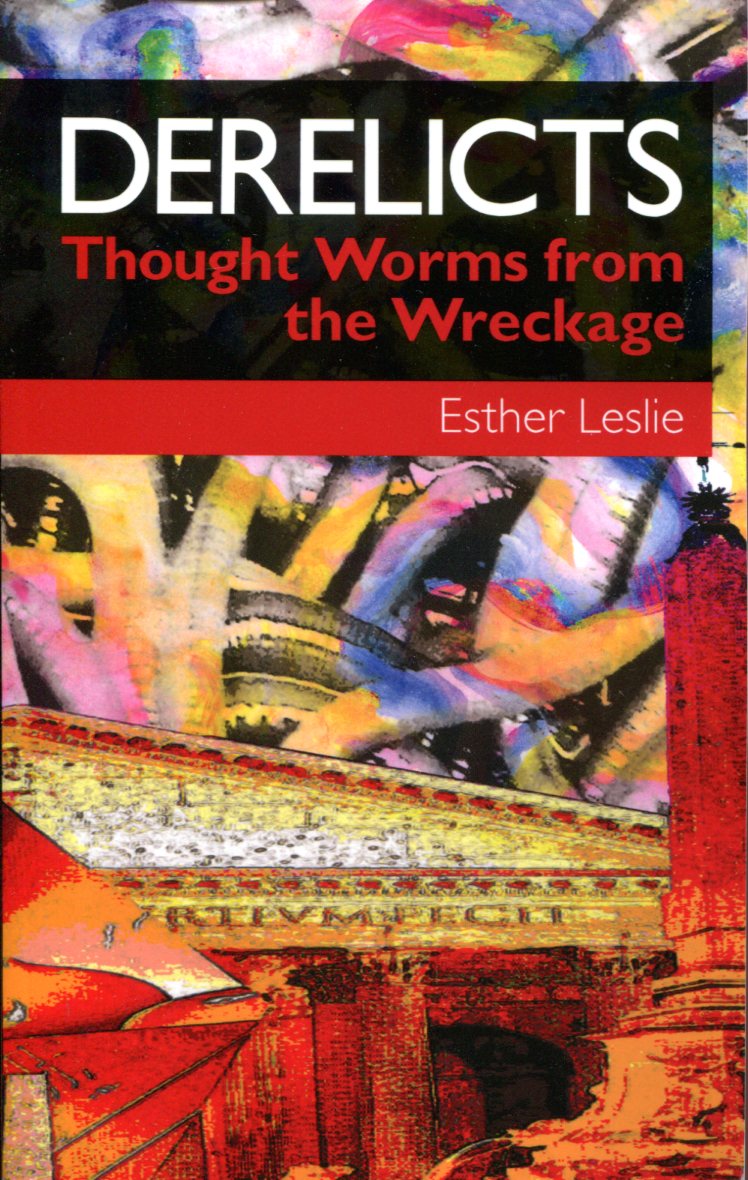
Philosophy and art with the imagination to actually change the world: this is the unfinished dream of history and the heart of the revolutionary modernism of the early 20th century, which globalised war and exploitation managed indefinitely to defer. Esther Leslie reopens the cold case on filmmakers, artists, thinkers and other animals, exiled or otherwise Disneyfied, and finds still-warm fertile ground for a wild future as yet unfulfilled. From ideal homes with traces erased to utopian rivers drawn back to their source, the alienated subject of history discerns its rightful place in the present tense, with no room for buts or half-measures. The derelicts of history find new life beyond commodified thought: would that the same could be said for all their readers..

First published by the IS Group (90s forerunners of the AMM & Unkant) in 1997, More Years for the Locust is a history of the origins of the SWP written by Jim Higgins, a leading member of the Socialist Review Group and International Socialists (forerunners of the SWP), who directed the group's industrial work for many years as well as working on Socialist Worker, before forming the IS Opposition which opposed the group's turn away from its rank and file strategy in the trade unions. The book tells the story of the British Trotskyists as they emerged from the Second World War, and of how the group around Tony Cliff built a distinct tendency based on the theories of State Capitalism and the Permanent Arms Economy. Higgin's describes the development of this, the IS tendency from Cliff's early years in Palestine, through the 50s and 60s, down to the expulsion of the IS Opposition in the mid-70s, shortly before the International Socialists declared themselves a fully blown revolutionary party, the SWP. Published with a new Foreword by John Game
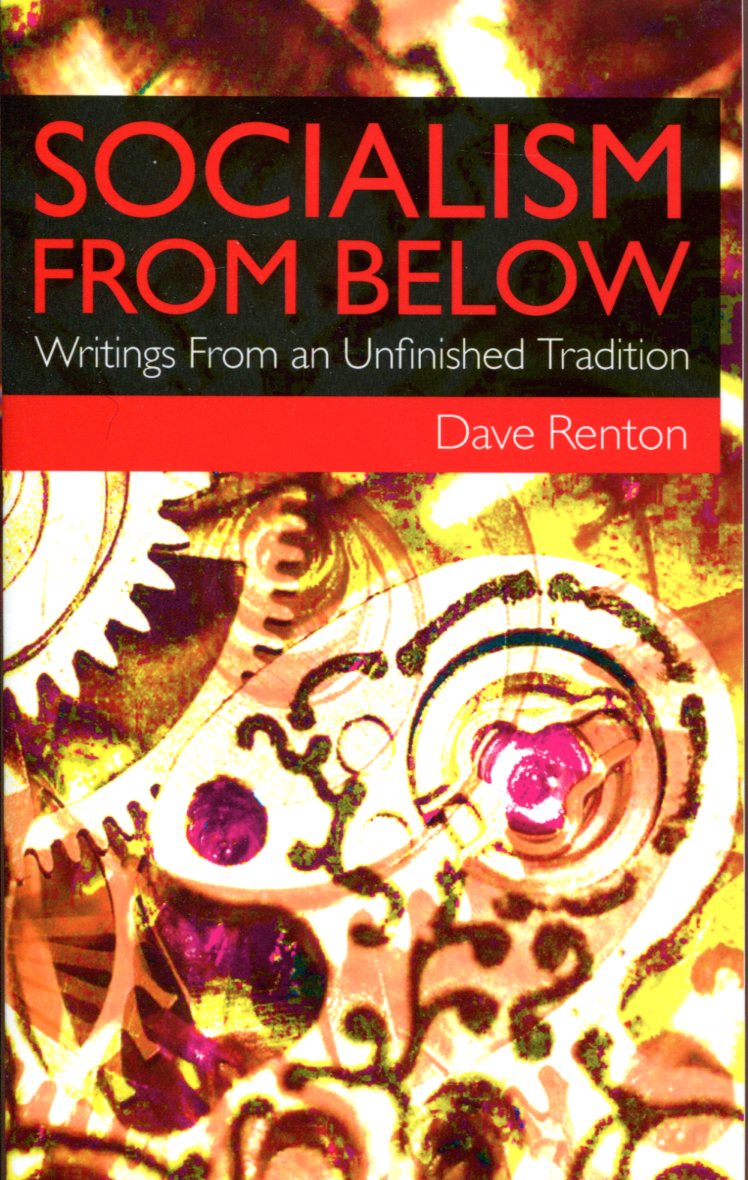
Argumentative, contentious and thought-provoking, these collected articlesinvite us to critically reconnect as a diaspora to the IS tradition – not onlyof Cliff or Harman, but also Hallas, Kidron, Sedgwick, MacIntyre, Harris,Widgery, Higgins and many others, many unsung. This is the extension of aninvitation to reconnect not as a lifeless antiquarian exercise or arrogant exclusivismbut in the spirit of the critical slogan ‘the IS tradition is dead! LongLive the IS tradition!’Jules Alford
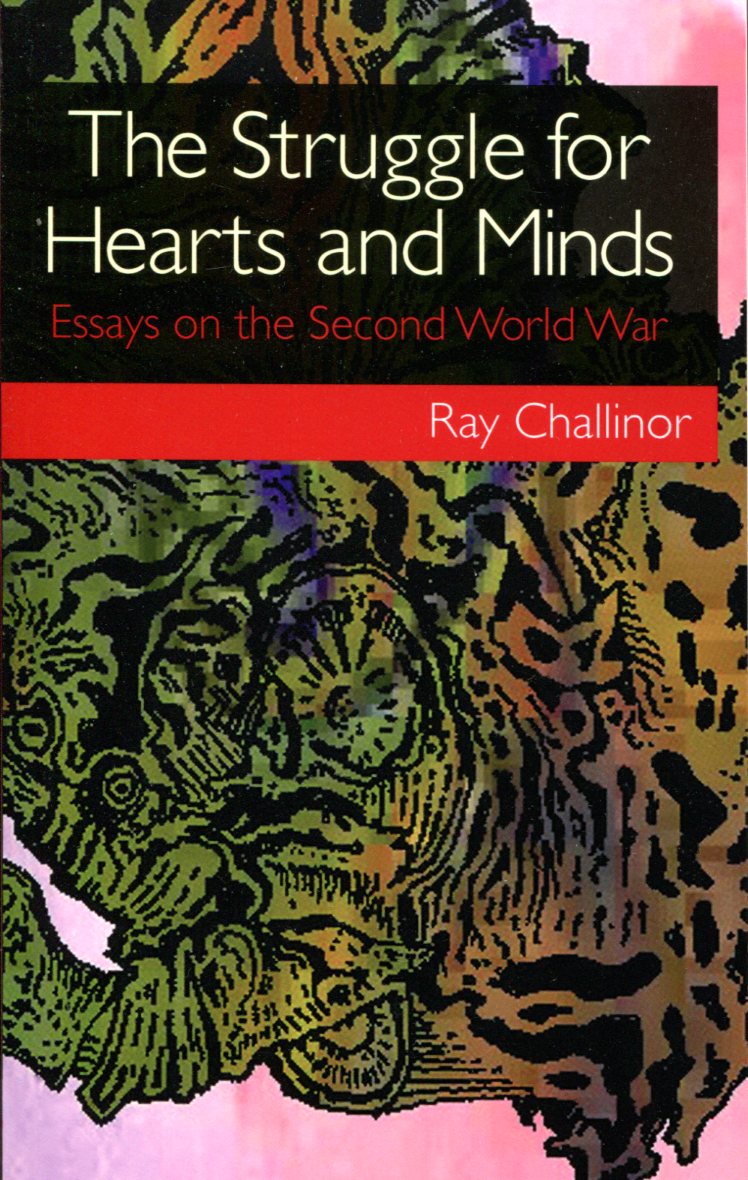
This book of essays is a shocking read, but the shocks arrive from the history itself, not sensationalist writing. We’ve been told that the Second World War was a war against evil waged by the goodhearted and true. The spectre of Hitler and Nazism is invoked every time NATO bombs are aimed at a defenceless country. In his scathing account of ruling-class fears, plans and allegiances, Ray Challinor shows how much their every move was governed by competition and self-interest – and anxieties about popular reaction. His evidence shatters the comforting national myth which has been spun around the cataclysm – and shows that people, working-class people, do not like killing each other, they had to be cajoled and manipulated into doing so.

Those elements or key events in Labour movement history that have not conformed to the theory of the ineluctable evolution of the movement into a party committed to peaceful constitutional reform have been either written out of history altogether or relegated to mere historical footnotes. Often they are portrayed as deviations at best irrelevant to or, worse still, hindering the progress of effective working-class political representation. Those historical actors or movements that in Britain explored or attempted other routes to political change are generally considered condescendingly as primitives or patronisingly as naïve as soon as they ventured down the path of physical force or large scale resistance associated with Revolution rather than Reform. Consequently, in most histories of the British Labour movement the story of the Chartists has focused on the large-scale mobilisations of petitioners, the development of mass-circulation radical newspapers for working people and the promulgation of the tactic of the general strike, the ‘sacred month’ or ‘big holiday’. The Newport Uprising and other attempts to use physical, as opposed to moral force have been, if not hidden from history, then at least pretty heavily disguised. ____________________________________ With its meticulous attention to detailed sources, its comprehensive scope and its exacting research, this book doesn’t just address the neglect of this important and interesting episode in Labour movement history, but more importantly it also challenges us to think again about the revolutionary potential of the British Labour movement.By challenging the prevailing hegemony relating to the events and significance of 1839, this book assists us greatly in understanding the potential for future challenges to the system.John McDonnell MP, Foreword In retrieving the suppressed history of the Chartist insurrection, David Black and Chris Ford have written a revolutionary handbook. Without romanticism or condescension, they track the difficulties of unifying local revolts without selling out to the ‘representative politics’ favoured in the parliamentary charade. As today’s anti-capitalism faces the problem of anger without organisation, the lessons of the Chartists become crucial. Dialectics is not something to be derived from pure philosophy: by looking at the political problems of an insurgent working class, Black and Ford resurrect the true One-to-Many dialectic.Association of Musical Marxists


